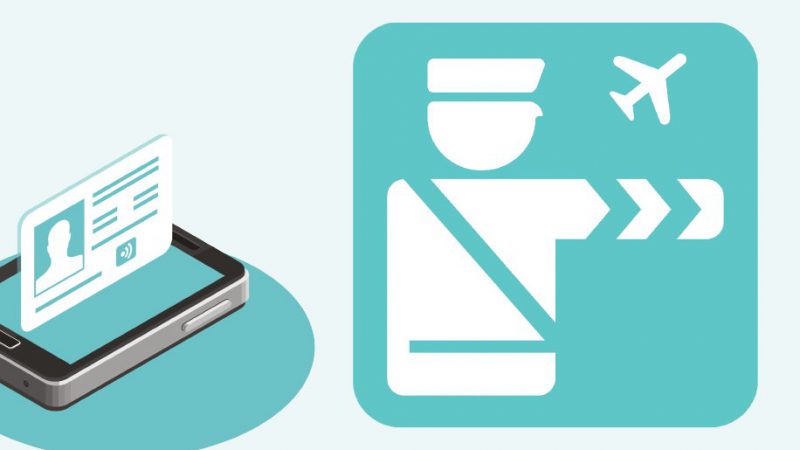Mobile Passport
A new way to speed through US Customs
September 30, 2019


Too often air travelers coming into the US are stuck in long lines that can last an hour or more, waiting for “inspection” by the US Customs & Border Protection service.
The CPB’s optional Global Entry system can expedite this process, ushering through inbound travelers in as few as three to five minutes. But as is the case with any of the government’s Trusted Traveler programs, Global Entry travelers, must first sign up and pay a $100 fee, schedule an elusive in-person CPB interview, and then undergo extensive background checks. It’s an arduous, months-long process and there’s no guarantee of approval. Worse yet, the system of applying – and re-applying at the end of the five-year membership term – has all but ground to a halt in the current border control chaos.
Global Entry Partner & Alternative
Enter the CPB’s Mobile Passport Control (MPC) system. It was designed to speed the agency’s personal inspection process by leveraging the utility and convenience of smartphones.
In 2014, Airside, a provider of mobile travel technology solutions, teamed up with the Airports Council International North America (ACI-NA) and brought the idea of MPC to the attention of the CBP as “a privately-developed/ Federally authorized concept” – that is, an initiative that, by design, wouldn’t require federal funding.
More recently, Airlines for America, the North American airline trade group, joined Boeing and ACI-NA as backers of the platform. Meanwhile, each participating airport and cruise port independently invests in its own signage, equipment and staff training to make the on-the-ground experience intuitive.
The system is only available to US passport holders and Canadian nationals. But MP is nonetheless a growth proposition, according to Airside’s CEO, Hans Miller, noting the app has been downloaded at least 7.5 million times. At last count, the MPC system is operating at 27 US airports and four US cruise ports. Indeed, since its debut in 2014 at Atlanta’s Hartsfield-Jackson airport, it has been used as many as 12 million times.
“Global Entry (aviation), Nexus (northern land border), and Sentri (southern land border) are Trusted Traveler programs, requiring a background check, fee, and interview,” Miller explains. “Once approved, you use a kiosk each time you arrive in the US, hand a paper receipt to a CBP officer and then you are on your way. The Mobile Passport, however, is a free app based on an automation program, meaning that it enables you to submit your passport and customs declaration information via your mobile device. It does not require an intrusive background check nor your Trusted Traveler number,” he says.
“It is ideal to have both Trusted Traveler status and the Mobile Passport app so you can choose the shortest line and breeze through Customs on your preferred program. Your results may vary depending on the airport and the time of day. Just make sure not to use these programs interchangeably for the same flight,” he advises.
Security Solution
Miller emphasizes that due to MP’s secure encryption protocols, a traveler’s data moves safely to the CPB. Among other things, a user is required to create a pin code prior to viewing his or her server-issued encrypted QR (quick response) code which can manage the case if a mobile device falls into the wrong hands.
“Trust is the most critical element of our business,” says Miller. “Industry-leading encryption and security technology is embedded in every aspect of the MP platform, from front-end applications and software development kits to encrypted transmission to high-security data management.”
Mobile Passport can be found at major US airports covering 85 percent of the international air travel coming into the country. Typical major airports using major passport control like New York’s JFK, Atlanta’s Hartsfield and LAX in Los Angeles process between 2,500 to 4,000 MPC travelers each day, says Miller.
Mobile Passport opened at Philadelphia International Airport in March and most recently at the end of August in San Juan, Puerto Rico, at both Luis Muñoz Marín International Airport and the Port of San Juan.
Centralized Information Storage
As a convenience option, one can pay $14.99 per year to store all of one’s passport information on a smart phone so that the information needn’t be input repeatedly. Family members traveling together can use the same MP profile.
As for any resistance from the CPB in opening up the inspection process to the disruptive potential of the smartphone, Miller notes there was little if any. “Without the CBP’s willingness to create the MPC program team, of course, there would be no MP app,” says Miller. “They made clear that we had to meet some stringent privacy, security and system performance standards. As to privacy, our whole company is built on the idea that a traveler’s privacy is non-negotiable.”
Right Time
Miller is quite upbeat on the prospects for growth in the MP app and MP-driven systems, pointing to at least two factors: 1) continuing growth in both global business and leisure travel; and 2) the prospect that “border crises” in the US will necessitate the redeployment of CPB agents – leaving fewer agents to man airport customs inspection lines. Passengers will be and are looking for alternatives to the stalled Trusted Traveler options.
Additionally, in partnership with Boeing, MP recently launched a new service called the Jeppesen Mobile QuickClear. It’s an app that enables operators of private aircraft to use a tablet to gather passport data from passengers. This helps streamline their international outbound and inbound flight clearance requirements through CBP on a mobile device.
“Giving travelers control over their personal information – their passport data, their photographs, etc. – is going to be a critical element in getting to the industry’s seamless travel vision,” Miller says.




